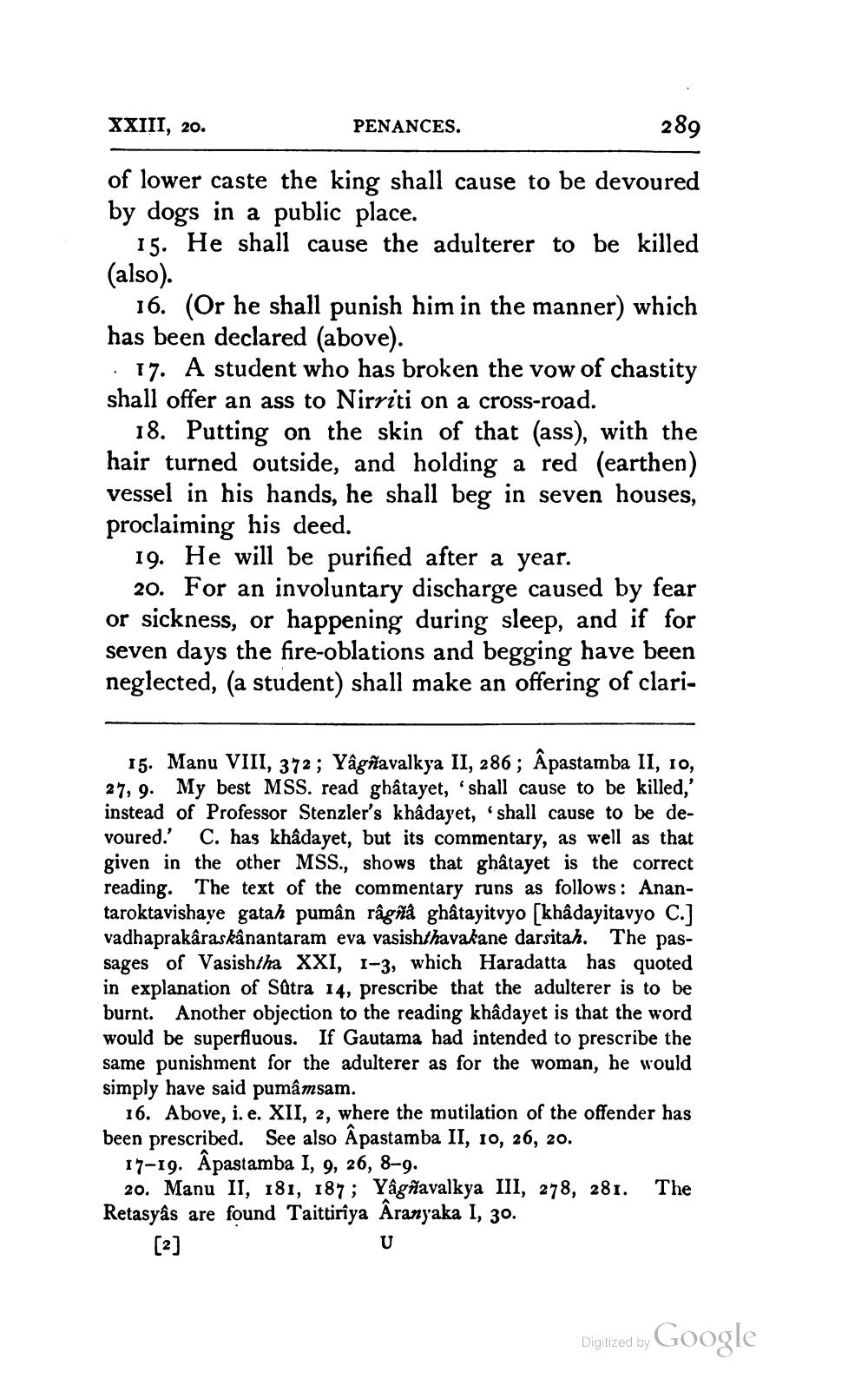________________
XXIII, 20.
PENANCES.
289
of lower caste the king shall cause to be devoured by dogs in a public place.
15. He shall cause the adulterer to be killed (also).
16. (Or he shall punish him in the manner) which has been declared (above). · 17. A student who has broken the vow of chastity shall offer an ass to Nirriti on a cross-road.
18. Putting on the skin of that (ass), with the hair turned outside, and holding a red (earthen) vessel in his hands, he shall beg in seven houses, proclaiming his deed.
19. He will be purified after a year.
20. For an involuntary discharge caused by fear or sickness, or happening during sleep, and if for seven days the fire-oblations and begging have been neglected, (a student) shall make an offering of clari
15. Manu VIII, 372 ; Yâgħavalkya II, 286; Âpastamba II, 10, 27, 9. My best MSS. read ghatayet, 'shall cause to be killed,' instead of Professor Stenzler's khâdayet, shall cause to be devoured.' C. has khâda yet, but its commentary, as well as that given in the other MSS., shows that ghâtayet is the correct reading. The text of the commentary runs as follows: Anantaroktavishaye gatah pumân râgñã ghâtayitvyo [khâdayitavyo C.] vadhaprakâraskânantaram eva vasishthavakane darsitah. The passages of Vasishtha XXI, 1-3, which Haradatta has quoted in explanation of Sätra 14, prescribe that the adulterer is to be burnt. Another objection to the reading khâdayet is that the word would be superfluous. If Gautama had intended to prescribe the same punishment for the adulterer as for the woman, he would simply have said pumâmsam.
16. Above, i.e. XII, 2, where the mutilation of the offender has been prescribed. See also Âpastamba II, 10, 26, 20.
17-19. Apastamba I, 9, 26, 8-9.
20. Manu II, 181, 187; Yâgħavalkya III, 278, 281. The Retasyâs are found Taittirîya Aranyaka I, 30.
[2]
Digitized by Google




